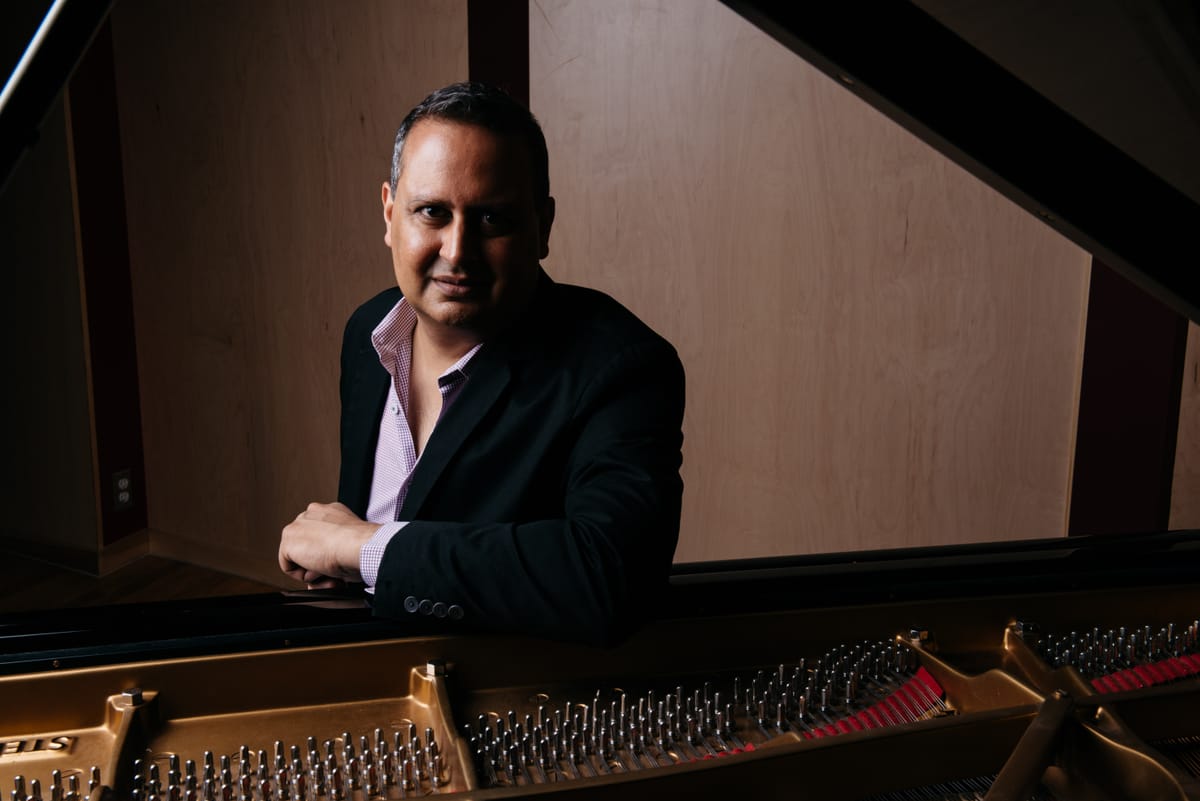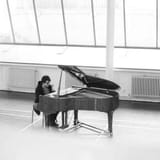Raj Bhimani

Please share your background with us.
I was born in the States and spent most of my childhood in Los Angeles. My parents saw that American kids had lots of time after school so they signed me up for baseball and piano, just like the kids next door. One was clearly more interesting to me than the other. By the time I was 13 I was at the piano 6 hours per day, then even longer once I turned 16. I was headed in a musical direction, but wanted to ensure I was prepared for anything that might come my way later in life so I applied to a liberal arts college with a strong music program for my undergraduate studies. I was fortunate to be admitted to Pomona College in California. The music faculty challenged and inspired me. I couldn’t have been happier. I felt ready for conservatory training after that and earned my Master of Music degree from the Peabody Conservatory in Baltimore. Surrounded by dedicated musicians all striving to be their best, my expectations grew as I began to realize how much was possible with very hard work. I then moved to Paris where I had the opportunity to study privately with one of the great pianists of the 20th Century: Nicole Henriot-Schweitzer. As a child she performed four-hand concerts with Ravel. She was close friends with many of the greatest composers of her time and premiered many of their works. Prokofiev entrusted to her his Second Piano Concerto, a piece she learned from manuscript and later recorded. She introduced me to Henri Dutilleux, whose music I perform. After my years in Paris I moved to my current home, New York, where I began studies with Seymour Bernstein. A beautiful documentary made about him by Ethan Hawke, released this past year, has earned excellent reviews and captures Bernstein’s dedication to music and his exceedingly generous spirit. In New York I’ve built a studio of piano students while developing my performing and recording career.
Why did you choose a career as a concert pianist? Was your family supportive with this decision of yours?
It never felt like a choice that I made; it’s just what needed to happen. I spent all of my time at the piano, and while I was competent at other subjects none of them engaged me in the same way. My level of my dedication had to be obvious to my parents since the piano could be heard in every room of our house. But it never took away from my studies; I graduated at the top of my class in high school. I always appreciated how supportive they were, how they would take me to concerts I asked to attend, how they bought me a grand piano when they saw how hard I was working, and how they made sure I was able to study in all the places I wanted. While my mother was alive she’d come to hear me play whenever she could. She particularly loved coming to Paris, but also traveled to other cities to hear me play.
How has the journey been since?
It’s definitely been a journey – through different continents speaking different languages, meeting all sorts of people all drawn to music. When we’re young we can never really imagine what a life in music will turn out to be. I never expected that teaching young people would become such an important part of my mission, or that I’d premiere pieces written especially for me. I also never expected to learn what wonderful people musicians are as a group. Pianists spend most of our time alone in a practice room. Attending conservatory and making chamber music with other artists gave me a chance to see how privileged I am to be part of the musical profession. I wouldn’t trade it for anything. And music only becomes more meaningful to us through time. I’m grateful it is the entire focus of my professional life.
What are your thoughts on the classical music scene in India? Do you visit and perform here often?
I’ve started coming to India more frequently this past decade. Visiting family in Bombay and discovering the country have always been enjoyable for me. During my last visit, I’ve had the opportunity to present concerts in different cities and judged at the MusiQuest festival in Pune. At all the concerts I played, I found dedicated and educated audiences with a real love for music. I was touched by how much appreciation was expressed to me for bringing music there. I also had a chance to meet students in several cities and have the impression that there’s a much wider interest in music in the younger generation. It seems to be exploding now, which I think is exciting. I’m hoping there are contributions I can make to help with this growth.
What advice would you give to aspiring young pianists in India? Have you come across musicians here who might just be ready to audition for music courses and conservatories in America?
I’ve heard a huge amount of talent in India every time I’ve been there and I’ve been introduced to hard-working students in every city I’ve visited. In Pune, all the judges and I were overwhelmed by the enthusiasm of the participants at MusiQuest. I was working with the youngest students there and saw a large number of students with great promise. Many of them are getting very fine training and could go far if that continues. One of the winners in the senior division has already applied to a music school here in the States. We were all impressed with his talent and hope he has the chance to cultivate it further. My advice to students is to spend as much time at the piano as possible, and to hear as much live music as possible. Recordings are helpful, but hearing music as it’s made is where we learn the most.





